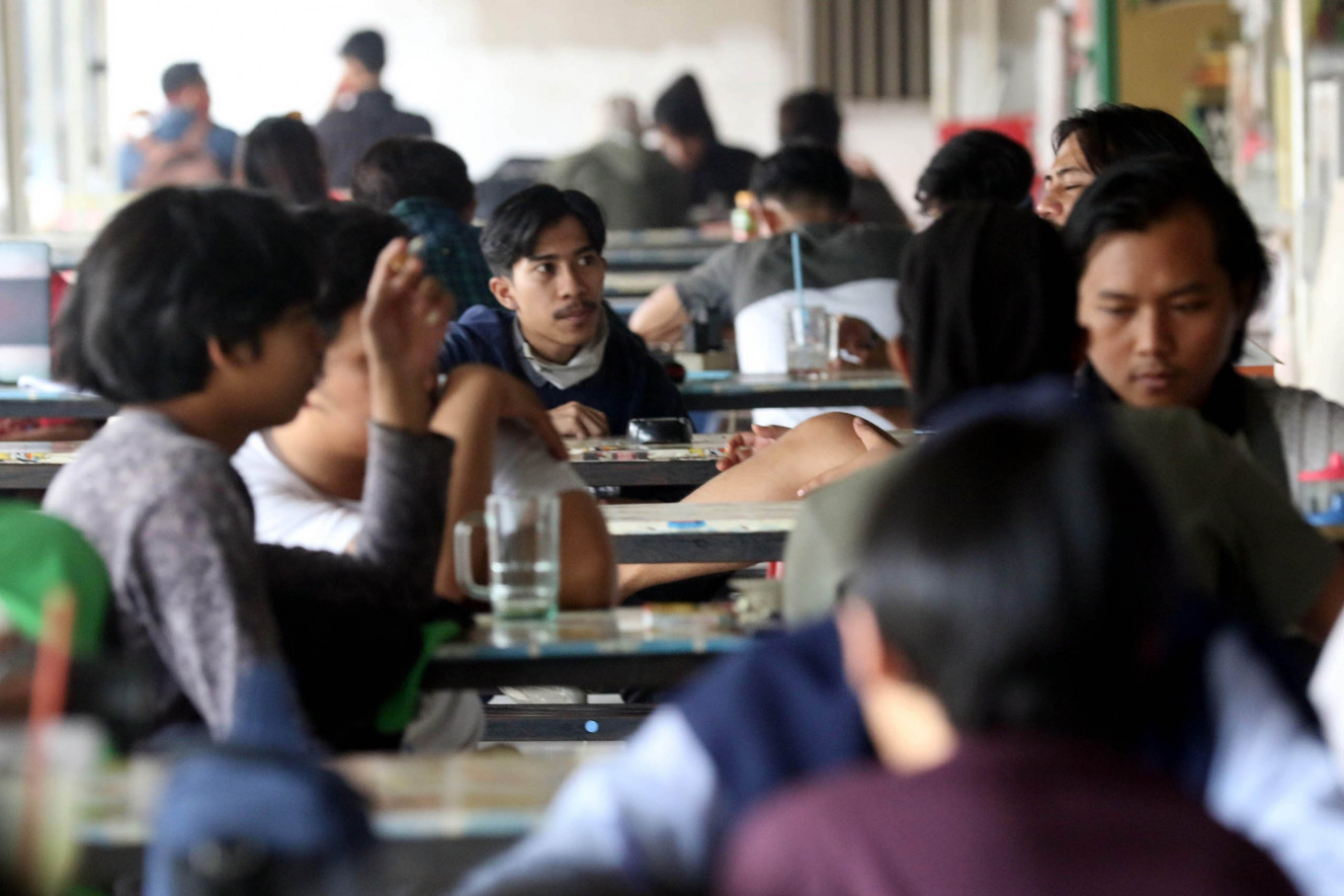Popular Reads
Top Results
Can't find what you're looking for?
View all search resultsPopular Reads
Top Results
Can't find what you're looking for?
View all search resultsSome provinces containing COVID-19, improving economy: CSIS
Change text size
Gift Premium Articles
to Anyone
A
s the debate on whether to prioritize public health or economic recovery continues in Indonesia, several provinces outside of densely populated Java have managed to contain the coronavirus disease without sacrificing the local economy, a recent study by the Centre for Strategic and International Studies (CSIS) has found.
The Jakarta-based think tank launched its online COVID-19 dashboard on Tuesday, which collates data on virus mitigation and economic activities at the provincial level all across the country.
The dashboard is divided into four quadrants that represent the variations of outcomes at a given time, from the worst-case scenario of declining economic activities and worsening health conditions to the ideal scenario of improvements in both health and economic aspects.
According to compiled data for July 25, nine provinces – Riau Islands, West Sumatra, Banten, West Kalimantan, North Kalimantan, East Nusa Tenggara, Lampung, Bangka Belitung Islands and Jambi – were showing a reduction in the number of active cases in their respective regions amid signs of improving economic activity.
Meanwhile, the two national epicenters of the outbreak, Jakarta and East Java, were among provinces where economic activity has picked up but is accompanied by an increase in COVID-19 transmissions.
To determine the COVID-19 transmission in a given province, CSIS researchers used the so-called COVID-19 Intensity Index, which measures the growth of the disease’s transmission, its death rate and the number of active cases.
Meanwhile, day-to-day economic activities were measured through the Mobility Index, which is drawn from the Facebook Range Map as proxy data, considering the lack of other economic data suited to real-time comparisons.
The researchers used as the baseline the conditions on June 4, when the Jakarta administration announced the transition from large-scale social restrictions (PSBB), to measure changes in both the Mobility Index and the COVID-19 Intensity Index.
Based on this data, CSIS senior economics researcher Haryo Aswicahyono said that one preliminary takeaway was that reopening regions had brought about more infections.
“If we look at the dashboard, it seems like the easing of the PSBB has resulted in [an increase] in the movement [of people],” Haryo told The Jakarta Post on Thursday. “The reopening [of a region] comes with a cost, namely the increase of COVID-19 [cases] in several regions.”
He noted, however, that the economic and social makeup of provinces could also play a part in influencing the Mobility Index indicators. For instance, people living in regions that are more dependent on agriculture may be more inclined to go out compared to those who reside in big cities.
Additionally, the mobility of parents could also be lower than it should be, given that children have yet to go back to school.
After a month of taking gradual steps to reopen the economy, Indonesia has seen its COVID-19 cases and deaths double as crowds reemerge in virus epicenters like Jakarta.
Experts have cautioned that the country is at risk of becoming one of the worst hit worldwide, but officials are encouraged by the work of CSIS in providing tools that would allow them to measure the correlation between public health and economic sustainability.
National Disaster Mitigation Agency spokesperson Raditya Jati welcomed the research by CSIS, underscoring its importance to policymakers at the regional level.
“The dashboard could be [used to] observe [data] in a time series to predict scenarios, show trends [for] decision-making,” said Raditya during the dashboard’s launch event.
“If we are talking about the links with economic growth, I think it is important for policymakers in provinces, cities and regencies to understand that prevention is a key factor in reducing transmission.”
Titik Anas, an expert staffer for Finance Minister Sri Mulyani Indrawati, also welcomed the initiative, saying it could act as an early warning system for policymakers by allowing them to adjust their policies to correspond to any given situation.
“From the dashboard, it could be seen that the more active cases you have, the less the economy performs. This encourages regional administrations and the central government to design a policy [in] response [to the situation],” she said on Tuesday.










